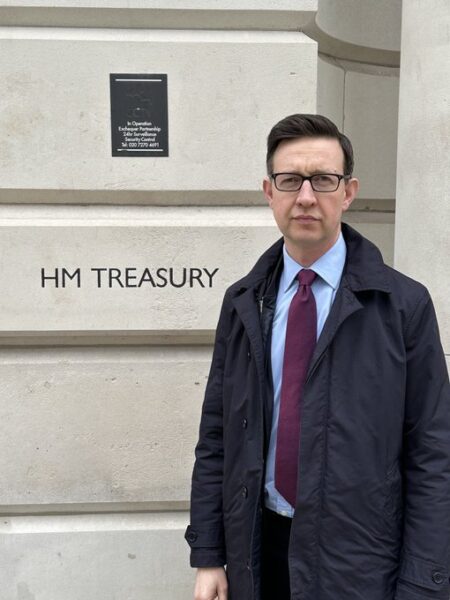Call the WSTA Team
020 0789 3877
Email: info@demo.wsta.co.uk
Budget
| 21 February, 2024

WSTA calls for a cut in alcohol duty to boost revenue to the Exchequer, invest in British business and help cash strapped consumers
Wine and spirit businesses are calling on the Chancellor to take urgent action to recover almost £600million in losses to Treasury coffers by cutting alcohol duty at the Spring Budget.
The Wine and Spirit Trade Association argues that a duty cut will prevent further inflation-fuelling price rises, support British business and boost revenue to the Exchequer.
The HMRC’s latest data published today (Wednesday 21 Feb) shows excise duty receipts for wine and spirits combined show the Treasury lost of £436million between September and January compared with the same period in 2022/23. Add to that, losses from beer and cider, Treasury coffers are down almost £600million.
Alcohol duty hikes in August last year were the largest in almost 50 years, adding 20% to excise duty on over 85% of all wines on the UK market and more than 10% to duty paid on full strength spirits.
Following those duty increases, sales volumes have declined, alcohol inflation has risen to more than double the headline rate – while revenue from duty receipts has declined.
*The WSTA’s, soon to be published, Market Report reveals that in the twelve weeks to December sales of spirits and wine were in decline in Britain’s supermarkets and shops. Compared to the previous year:
According to ONS data for average prices on items in your shopping basket in January 2024:
Wine duty was last cut in 1984 when Nigel Lawson was Chancellor. Spirit drinkers haven’t enjoyed the benefits of a duty cut since 2015, under the coalition Government.
Miles Beale, Chief Executive of the Wine and Spirit Trade Association, said:
“Last year’s punishing duty increases have had an immediate and negative impact on the amount of wine and spirit sold in the UK. Not only has this hurt British businesses, it has fuelled inflation and significantly reduced excise duty receipts to the Exchequer.
Recent history has shown that cutting excise duty can lead to increased sales, prevent further price rises for consumers and bring in more revenue into the Exchequer. We are calling on the Chancellor to do himself – and everyone else – a huge favour by cutting alcohol duty.”
Philippa Strub, UK CEO, Laithwaites said:
“It is no surprise that August’s 20% increase in wine duty has led to the Government receiving less duty revenue. We, along with many other wine merchants, have seen sales volumes decrease since the duty hike as consumers react to higher prices.
Wine drinkers across the UK face yet higher prices from August this year if the Government increases duty at the Spring Budget. Worse still for consumers, UK inflation and the Exchequer, the Government currently plans to unleash the full extent of the new duty system on wine next year – a system so fiendishly complicated that even Laithwaites, a business with over 50 years of experience, will struggle to operate across our range of 2,000 wines.
With duty-fuelled wine inflation already running much higher than UK inflation, we call on the Chancellor to cut duty at the Spring Budget and make the wine duty easement permanent.”
As part of a change in approach to stop the rot and encourage economic growth the WSTA is also calling for the Chancellor to make permanent its temporary easement for still wine. It argues that maintaining the approach for taxing for wine that it introduced in August would make little difference to duty receipts but would avoid further significant red tape costs to business, in particular the UK’s thousands of SME wine importers and retailers.
While the new system may appear simpler in a spreadsheet, in practice, for the wine sector, the WSTA warns it is categorically the opposite. If the easement ends, as planned in February next year, a single amount of duty paid on wines between 11.5 -14.5% abv – £2.67 – will be replaced buy up to 30 different payable amounts from £2.45 – £3.10 per bottle.

020 0789 3877
Email: info@demo.wsta.co.uk